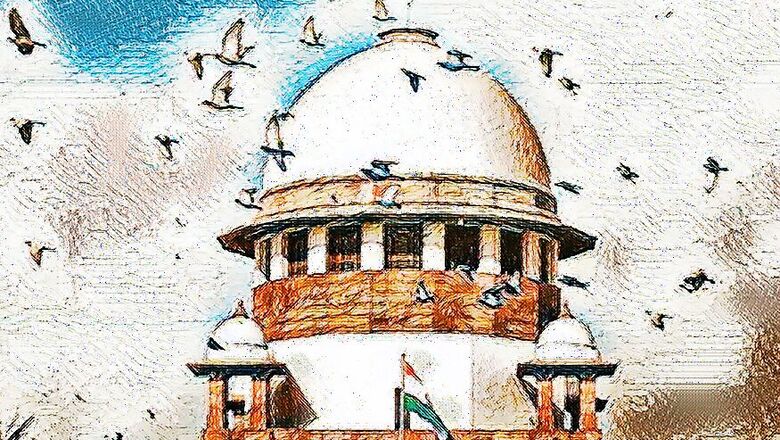
views
New Delhi: No litigant has a right to question the ability or integrity of a judge and such acts may amount to an attack on the judiciary, held the Supreme Court on Monday.
"No litigant has a right to attribute motives to a judge. No litigant has a right to question the integrity of a judge. No litigant has a right to even question the ability of a Judge,” said a bench of Justices Deepak Gupta and Aniruddha Bose.
When the ability, integrity and dignity of the Judges are questioned, this is an attack on the institution. It is an attack on the majesty of law and lowers the impression of the Courts in the public eye, the bench added.
The court convicted three persons, including two lawyers of contempt of court, for writing letters to the President, Chief Justice of India and other judges, containing a plethora of accusations against two sitting judges of the Supreme Court.
“There can be no manner of doubt that any citizen of the country can criticise the judgments delivered by any Court including this Court. However, no party has the right to attribute motives to a Judge or to question the bona fides of the Judge or to raise questions with regard to the competence of the Judge,” held the bench.
It said that if such allegations which have not only been communicated to the President of India and the CJI, but also widely circulated on social media are permitted to remain unchallenged then the public will lose faith not only in those particular Judges but also in the entire justice delivery system. “And this definitely affects the majesty of the law.”
The bench further made it clear that members of the Bar cannot hold the judiciary to ransom by threatening Judges of initiating criminal action.
“If this trend is not dealt with firmly then any party against whom a case is decided will start filing criminal cases against judges. Lawyers who try to browbeat or threaten judges have to be dealt with firmly and there can be no illfounded sympathy for such lawyers. Such lawyers do nothing to help the legal fraternity much less the Bar,” it emphasised.
The bench took note of the contents of these letters such as ‘criminal-minded judges’, ‘judges running a syndicate’ etc and said that such accusations amount to scandalising the court and lowering its majesty.
It held the trio guilty of contempt of court and fixed May 1 for hearing them on the quantum of a sentence which may extend up to six months in jail or any other punishment deemed appropriate by the court.

















Comments
0 comment